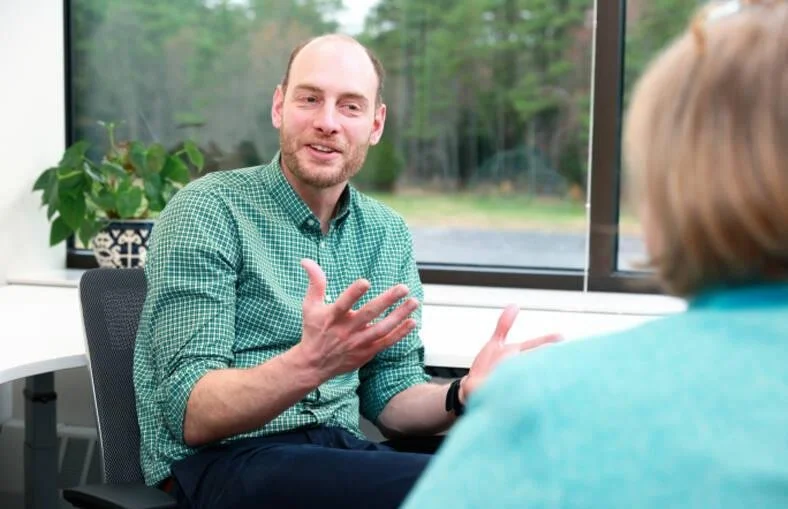By Meera Mahadevan, Granite State News Collaborative
Educational institutions and hospitals are taking steps to help alleviate New Hampshire’s primary care doctor shortage by trying to expand the pipeline of doctors to help replace those who are leaving.
Dartmouth College’s Geisel School of Medicine, the state’s only medical school, is among them.
Just last year, Dartmouth Health began a family residency program at Cheshire Medical Center in Keene with the hope that some of the residents will decide to stay in New Hampshire after they complete the program. The program is currently training 12 residents.
“We help them (residents) learn systems and communities and start to put down roots in a place where they will want to work,” said Dr. Karl Dietrich, director of the family residency program at Cheshire. “Residency training does not require any long-term commitments from graduates.They are not obligated to stay, but they’re with us for three years, and if we can create a wonderful training foundation where they feel grounded, then they’re much more likely to stay with us and practice long term.”
In fact, the welcome letter to medical residents in the Cheshire program boasts not only that residents will be training with world-class physicians, but also touts that Keene sits at the heart of the Monadnock Region and its quality of life, pointing out its numerous walking trails, museums and restaurants.
A residency program does not necessarily have to be associated with a university or an academic medical center. Hospitals can employ residents as long as the program is accredited by the Accreditation Council for Graduate Medical Education.
Dr. Karl Dietrich heads Dartmouth Health’s family residency program at Cheshire Medical Center in Keene. The program was started with the hope that some of the residents will decide to stay in New Hampshire after they complete the program. The program is currently training 12 residents. (Courtesy photo)
To that end, Portsmouth Regional Hospital began a family medicine, internal medicine and psychiatry residency program five years ago. Concord Hospital’s Dartmouth Family Medicine residency program has been around much longer, and it has residents serving at its Family Health Center clinical site in Hillsboro. Its residents also work at the health center in Concord, serving immigrants and other under-served populations.
In all, New Hampshire has four accredited residency programs: the White Mountains Medical Education Consortium; Concord Hospital’s Dartmouth Family Medicine program; Dartmouth Health’s residency program at Cheshire Medical Center in Keene; and Tufts University’s residency program at Portsmouth Regional Hospital. North Country Healthcare – an affiliation of four hospitals in Coos and Grafton counties – is finalizing plans to start a family residency program next year, according to the N.H. Medical Society
In comparison, Maine and Vermont have four and two family residency programs, respectively.
“Because many physicians remain in the communities where they complete their training, expanding residency opportunities is a key part of the solution” to the primary care doctor shortage, said Cathryn Stratton, chief executive officer at the N.H. Medical Society. “The solution requires an investment in training, recruiting and retaining family physicians, and it needs to include loan forgiveness, better reimbursement and support for rural practices,” she said.
According to the Association of American Medical Colleges’ 2024 Report on Residents which tracks trends among states through the phases of residency training, 422 residents out of 935, or 45.1%, who completed residency training from 2014 through 2023 stayed in New Hampshire. That figure is below the overall rate of 58.6 percent of the individuals who completed residency training in the same period who are practicing in the state of their residency training. The association says retention rates range from 39.4% in the District of Columbia to 78.5% in California.
Data on residency retention?
“Only time will tell in terms of where folks will practice,” said Dartmouth’s Dr. Dietrich. “We’re not going to solve this issue overnight, but I would love to move towards a place where we have a couple of people every year that want to stay in the surrounding area.”
This story is part of Critical Condition: What hospital consolidation means for care, access, and your community, a special series co-produced by partners in the Granite State News Collaborative. These stories are being shared by media outlets across New Hampshire. We want to hear from you! Take our short survey athttps://tinyurl.com/3au39uctabout your healthcare experiences. For more information, visitcollaborativenh.org.

